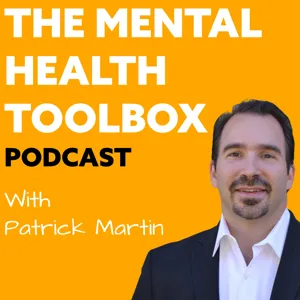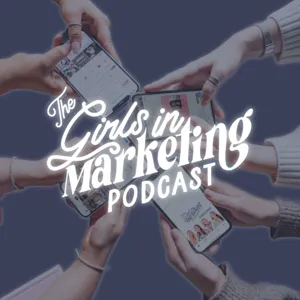Podcast Summary
Cleaning, hygiene, and self-compassion: Sharing struggles with cleaning and self-care can lead to support and connection. Societal expectations and judgments can be harmful, encourage a gentle approach with self-compassion.
Cleaning, hygiene, and self-compassion are deeply connected. In the TEDx talk "How to do Laundry when you're depressed," therapist KC Davis shares her personal experience of feeling overwhelmed by household chores during a difficult time in her life. Instead of facing judgment and criticism, she found support and connection when she shared her struggles on social media. Davis's book, "How to Keep House While Drowning," encourages a gentle approach to cleaning and organizing, emphasizing the importance of self-compassion and understanding that everyone's circumstances are unique. The discussion highlights how societal expectations and judgments around cleaning and self-care can be harmful, and encourages listeners to approach these tasks with kindness and understanding towards themselves and others.
Navigating Caretasks in Young Adulthood: Reframe caretasks as acts of self-care to reduce shame and guilt, prioritize them for mental health benefits.
Navigating young adulthood comes with a lot of uncertainty, and one of the challenges that arises from this uncertainty is the struggle with care tasks. These tasks, which include domestic chores and self-care, can be a source of shame and guilt for many people. However, it's important to reframe these tasks as caretasks, focusing on the self-care aspect rather than the obligation or guilt. The pandemic has highlighted the importance of caretasks and the impact they have on mental health. When support systems are taken away, caretasks can become overwhelming, leading to feelings of failure. It's essential to recognize the importance of caretasks and prioritize them as acts of self-care rather than sources of shame or guilt. Casey Davis, an author, therapist, and TikTok personality, shares her personal experience with mental health issues and the intersection of mental health and care work. She started making TikTok videos as a distraction and found a large audience resonating with her struggles with caretasks. By redefining these tasks as caretasks, we can focus on the self-care aspect and reduce the shame and guilt associated with them.
Understanding the Complexity of Daily Struggles: Recognizing that everyone faces challenges and deserves compassion, regardless of the reasons behind their struggles, can lead to self-compassion and motivation to overcome obstacles.
The inability to perform daily tasks or cope with life's challenges does not equate to being a good or bad person. There are various barriers that prevent individuals from managing these tasks, including environmental stress, lack of support, and physical or mental disabilities. Shame and self-judgment often arise when we compare our struggles to others or feel that we should be able to handle everything. However, it's essential to recognize that everyone experiences difficulties and deserves compassion, regardless of the reasons behind their struggles. By embracing self-compassion, we can better understand our limitations and motivate ourselves to overcome challenges. It's important to remember that the world is not always built equally for everyone, and recognizing our privileges does not diminish our struggles or suffering. Instead, it encourages empathy and understanding towards ourselves and others.
Approaching self-improvement with self-compassion and kindness: Shift perspective to view ourselves as deserving of compassion and kindness, focus on present skills to be kind to future selves, and liberate ourselves from the notion of being a good or bad person based on performance.
Approaching self-improvement tasks with self-compassion and kindness towards ourselves is more effective than viewing them as a form of self-punishment or atonement. Author and therapist Casey Davis emphasizes this idea in her book and TEDx talk. She shares her personal experience of trying various self-help methods with a mindset of self-disgust and the belief that getting her life together would make her worthy of love and peace. However, she encourages a shift in perspective to view ourselves as deserving of compassion and kindness, regardless of our current weaknesses or limitations. This approach allows us to focus on what we can do in the present with our current skills to be kind to our future selves. This not only makes the tasks more manageable but also fosters a healthier relationship with ourselves. Additionally, Davis suggests that we liberate ourselves from the notion of being a good or bad person based on how we perform care tasks and instead focus on improving our quality of life in the present with our current barriers. This approach allows us to customize a life that works for us and fosters a more positive and productive mindset.
Embrace imperfection for improved quality of life: Practicing self-compassion and letting go of perfectionism can lead to significant improvements in ease, efficiency, and overall quality of life.
Giving yourself permission to do things imperfectly and practicing self-compassion can lead to significant improvements in your quality of life. The speaker shares her personal experience of letting go of the need to fold her laundry perfectly and instead organizing it in baskets, resulting in a massive increase in ease and efficiency. She also emphasizes that the concept of laziness is often misdiagnosed and that underlying issues such as mood, motivation, or executive functioning are more likely to be the root cause. By focusing on self-compassion and addressing these underlying issues, we can make progress and improve our lives rather than getting stuck in the belief that we are lazy.
Focusing on fairness of rest distribution in relationships: Instead of comparing labor, prioritize fairness in rest distribution to ensure everyone has time for rejuvenation. Recognize the importance of rest autonomy and address challenges of asking for help.
Instead of focusing on the work being equal in relationships, it's more beneficial to focus on ensuring that rest is fair for both partners. The speaker argues that comparing labor is often an unfair comparison and can lead to devaluing someone else's efforts. Instead, the emphasis should be on ensuring that everyone has time for rest, which is not just sleep but any activity that rejuvenates them. The speaker highlights that work and care tasks have different demands and schedules, and care tasks are often cyclical and ongoing. Therefore, it's essential to recognize the importance of rest autonomy and strive for fairness in distributing it. The speaker also acknowledges the challenges of asking for help and the potential for judgment but encourages focusing on the importance of rest for everyone's well-being.
Care tasks disproportionately fall on certain individuals: Recognize the importance of distributing care tasks fairly and valuing the labor behind them, whether at home or in the office.
Care tasks, both at home and in the office, often fall disproportionately on certain individuals, leading to feelings of overwhelm and burnout. These tasks, while essential, are often invisible and undervalued. Women are not the only ones affected by this issue, and it's not limited to the home environment. In an office setting, someone is usually responsible for tasks like vacuuming, emptying trash, and other care tasks that keep the space functional. At home, these tasks, along with the mental load of remembering appointments, bills, and routine maintenance, can be overwhelming, especially for those with children. It's essential to recognize the importance of distributing care tasks fairly and valuing the labor that goes into them, whether at home or in the office.
Managing Daily and Occasional Home Care Tasks: Find ways to make daily tasks manageable and enjoyable, identify bottlenecks for overwhelming tasks, and leverage patterns and external stimuli for attention deficits.
Caring for a living space involves both daily and occasional tasks, each with their unique challenges. Daily tasks, while easier to create systems for, can be overwhelming due to their repetition. Occasional tasks, on the other hand, can provide a sense of productivity and accomplishment but may seem daunting due to their infrequency. People have different strengths and weaknesses, and it's essential to find ways to make care tasks more manageable and enjoyable. For those with attention deficits, introducing external stimuli or creating patterns can help increase motivation and dopamine production. When tackling overwhelming tasks like cleaning dishes, it's essential to identify the bottleneck and find ways to make it more approachable. This might involve breaking down the task into smaller parts, finding ways to make it more enjoyable, or seeking external help. Ultimately, caring for a living space requires persistence and creativity, and it's essential to find ways to make the tasks work for you.
Simplifying daily tasks: Consider organizing dishes before unloading, creating routines, or using temporary solutions to reduce stress during dishwasher unloading. Create a family closet with baskets and a dressing station to consolidate clothing items and eliminate multiple areas for dressing.
Creating a more functional home often requires addressing the sources of stress and inefficiency, and finding ways to simplify and streamline routines. For instance, in the case of disliking the unloading process of the dishwasher, the speaker considered various solutions such as organizing the dishes before unloading, creating a daily ritual, or even temporarily using paper plates. Another effective solution was creating a family closet with baskets and a dressing station, which consolidated clothing items and eliminated the need to go to multiple areas for dressing. These strategies can help reduce overwhelm and make daily tasks more manageable.
Creating systems for reactive tasks: Designing routines for reactive care tasks can improve focus and reduce agitation, while effective communication can lead to helpful assistance.
Creating systems and routines for reactive care tasks, such as dealing with laundry or cleaning up spills, can help reduce agitation and irritation for individuals who prefer to focus on proactive tasks. This might involve having laundry baskets in every room and being mindful of the number of steps required to complete a task. When faced with judgment from others, it's essential to remember that functional improvement is the goal and to communicate effectively with those who want to help. Instead of focusing on external opinions, individuals should prioritize sustainable steps towards their desired goal. If someone is trying to help, offering specific actions can be more effective than criticism.
The power of positive self-talk in managing homes and tasks: Changing the way we speak to ourselves can significantly improve our ability to manage our homes and daily tasks. Negative self-talk can be detrimental, but shifting to positive self-talk can lead to positive outcomes.
Changing the way we speak to ourselves can significantly improve our ability to manage our homes and daily tasks. Casey Davis, author of "How to Keep House While Drowning," shared her personal experience of this powerful shift during a conversation on the "How to be a Better Human" podcast. By stopping the negative self-talk, Davis found that keeping house became a little easier. The podcast episode was filled with practical tips and insights from Davis, who also shared her online presence at strugglecare.com and TikTok's "domestic blisters." The show's host, Chris Duffy, expressed his gratitude for Davis's work and her participation in the episode. The podcast is professionally fact-checked and brought to listeners by TED and PRX teams. Sponsors for the episode included Odoo, offering affordable all-in-one management software, and Slack, a collaboration hub for growing businesses. In essence, the takeaway is that the way we talk to ourselves can greatly impact our ability to manage our homes and work lives, and changing that narrative can lead to positive outcomes.






